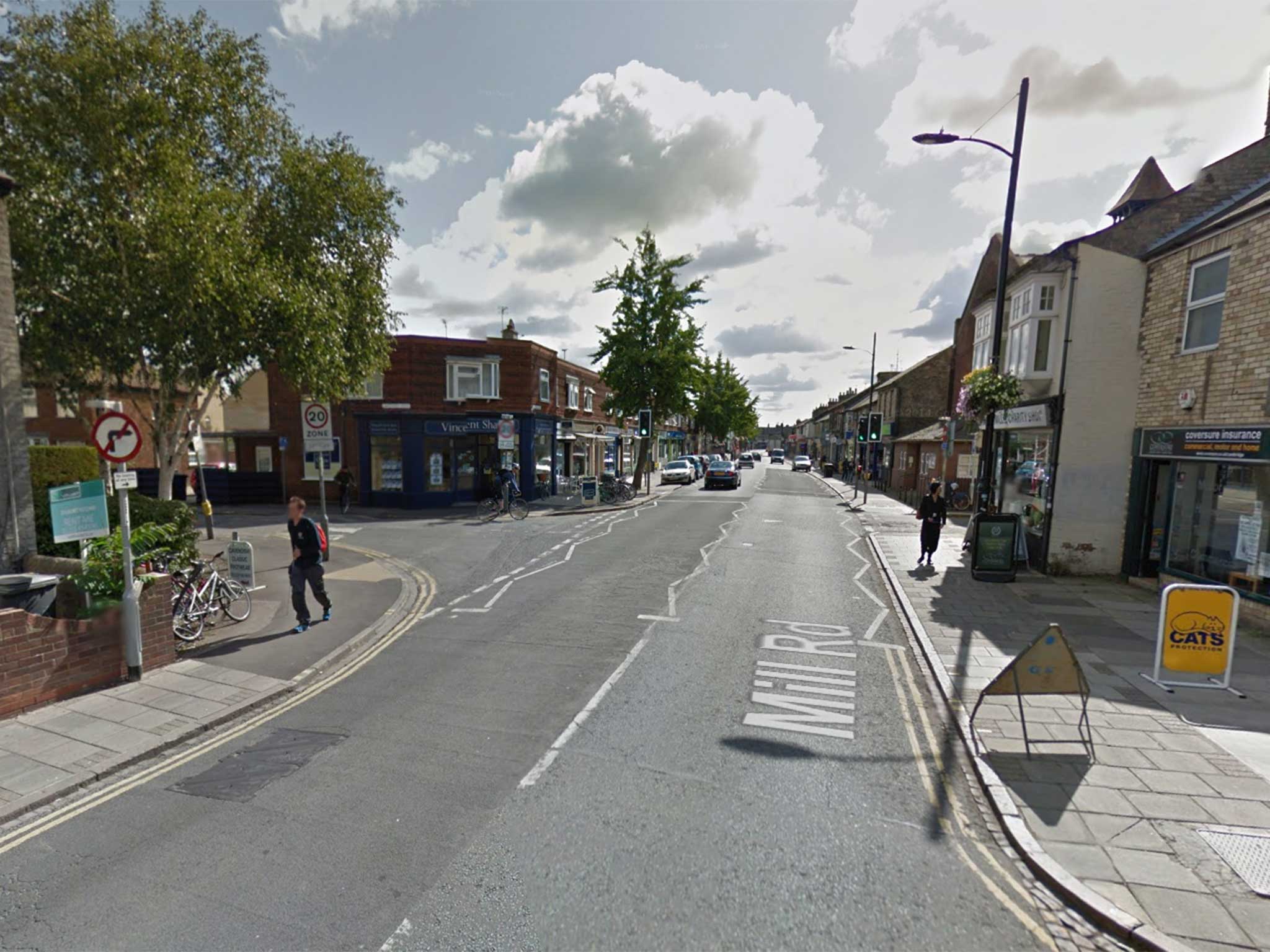Upscale Cambridge suburb Romsey riven by resident's bleak poem
'And do you lurk with foul-mouthed little boys/ Who smoke and spit/In alleyways, but find no joy in it/ And trail home listlessly?'

As Christmas poems go, it is an uncompromisingly bleak tale of “narrow, grubby streets” stalked by “sullen brats” who shoot cats with airguns, drunks who “don’t like what they see” and “sad-eyed little mums”.
However the gritty setting – a place where “beauty’s promise dies” – is not the Bronx or the Leith of Irvine Welsh’s Trainspotting, but rather a gentrified suburb of Cambridge where a typical terraced house can sell for more than £300,000.
Romsey was hailed as one of the coolest 30 places to live in Britain by The Times last year, has been described as the “new Islington”, while its annual winter fair has been compared to the Notting Hill Carnival.
So it was something of a shock to residents when a Church of England magazine delivered to about 4,000 people in the area featured "Romsey Town Christmas", a poem by local woman, Hilary Jolly.
“Lord, are you here in narrow, grubby streets?/ Dogs bark, babies cry,/ Drunks on benches watch the world go by/ And don’t like what they see,” it reads.
“And do you lurk with foul-mouthed little boys/ Who smoke and spit/In alleyways, but find no joy in it/ And trail home listlessly?”
While the poem ends on an optimistic note as “angels bring good news to Romsey Town”, some residents took to social media to express their fondness for the community.
BBC journalist Jeremy Sallis, who lives in the area, tweeted several messages with the hashtag “I love Romsey”.
“Not sure I'd agree with local church flyer through my door,” he wrote. “It's not the Romsey I know, maybe there's a Romsey in the Bronx?!”
Kilian Bourke, local councillor for Romsey, conceded the poem was “very well written”, saying Ms Jolly was “clearly reaching for a certain poetic effect - a contrast between the Christian nativity and modern urban life, I think”.
“But it's unfortunate that in so doing she has portrayed Romsey Town as a sort of modern-day Victorian hell,” he said.
“Even the one or two ‘drunks’ whom she rather presumptuously claims ‘don't like what they see’ seem to be more upbeat than her. On behalf of the residents of Romsey Town I would like to wish Miss Jolly a Merry Christmas and an extra-strong dose of festive cheer.”
The Rev Stewart Taylor, of St Philip’s Church Centre, which published the magazine, called Lookout, admitted the poem was not “a true picture” of Romsey, but added that it was “not meant to be taken literally”.
“To me it’s tongue in check. It’s not meant as a criticism. I know Hilary very well and she lives in the area but she’s been through some difficult times in her own life,” he said.
Rev Taylor said Romsey was a “brilliant area, beautiful in many ways” and it had become “quite expensive” to live there.
But he stressed that there was some truth in the poem, saying food banks were “very important” to some members of the community.
“Even today outside the church, there was a car with the back window smashed,” he said.
“The streets are narrow, there are drunks on benches, they are literally on Mill Road. But I don’t think there are foul-mouthed little boys particularly.”
Richard Berengarten, a poet and academic who has lived in Romsey for more than 30 years, praised Ms Jolly’s verse.
“It’s not a bad poem at all. Rhythmically, it’s quite interesting. It also makes a social comment, it’s well observed,” he said.
Mr Berengarten said he liked living in Romsey “very much”.
The town was originally built for railway workers around the beginning of the last century, but has experienced some gentrification as Cambridge has expanded.
Mr Berengarten said a young Cambridge academic had told him over dinner that Romsey was the “new Islington” but he said “that was bollocks really”.
However he added: “One could not say it’s impoverished. It’s not an absolutely, totally miserable deprived area. It’s not what Moss Side used to be like in Manchester.
“But the truth is that in affluent areas there are impoverished families and groups.”
Subscribe to Independent Premium to bookmark this article
Want to bookmark your favourite articles and stories to read or reference later? Start your Independent Premium subscription today.

Join our commenting forum
Join thought-provoking conversations, follow other Independent readers and see their replies